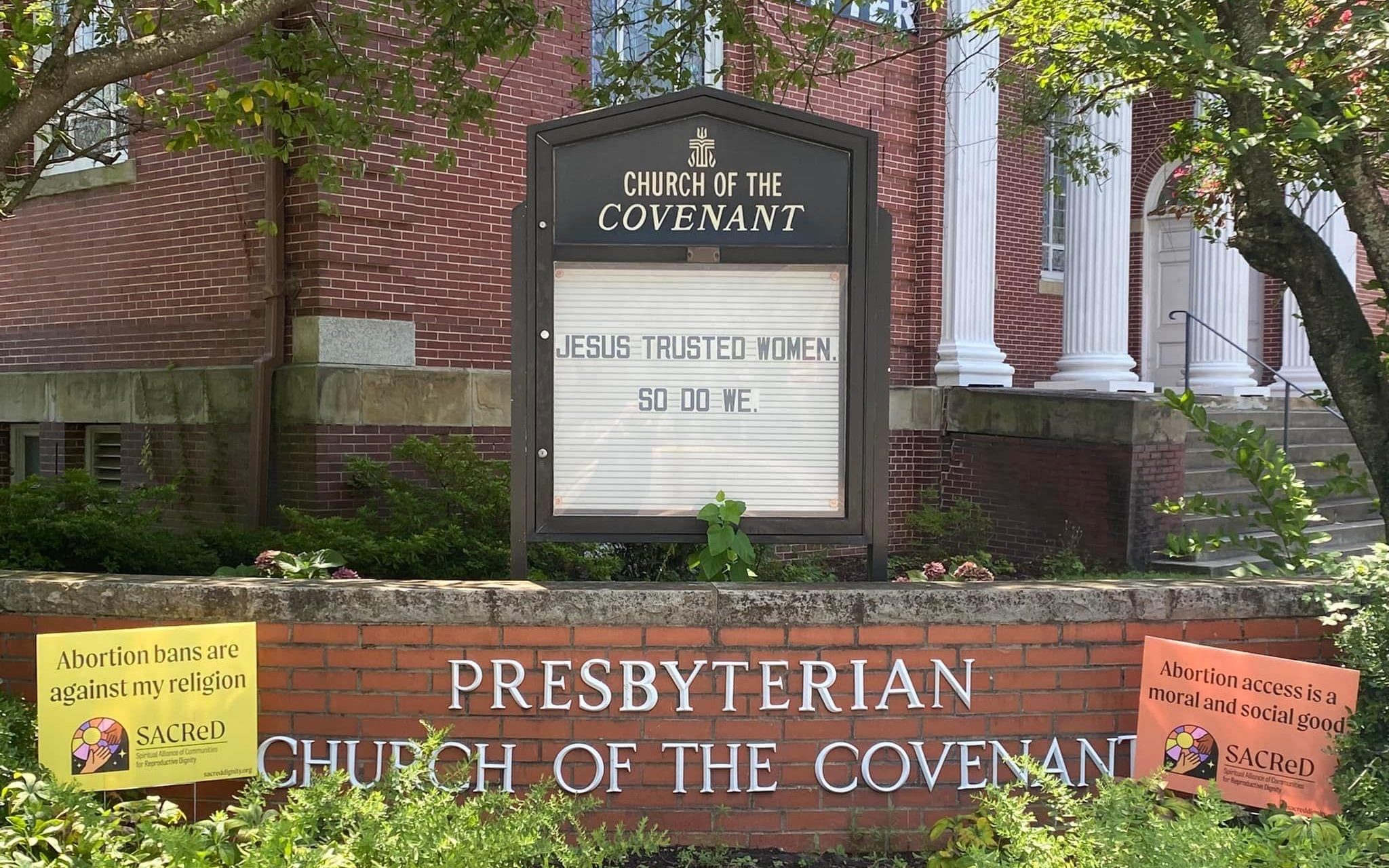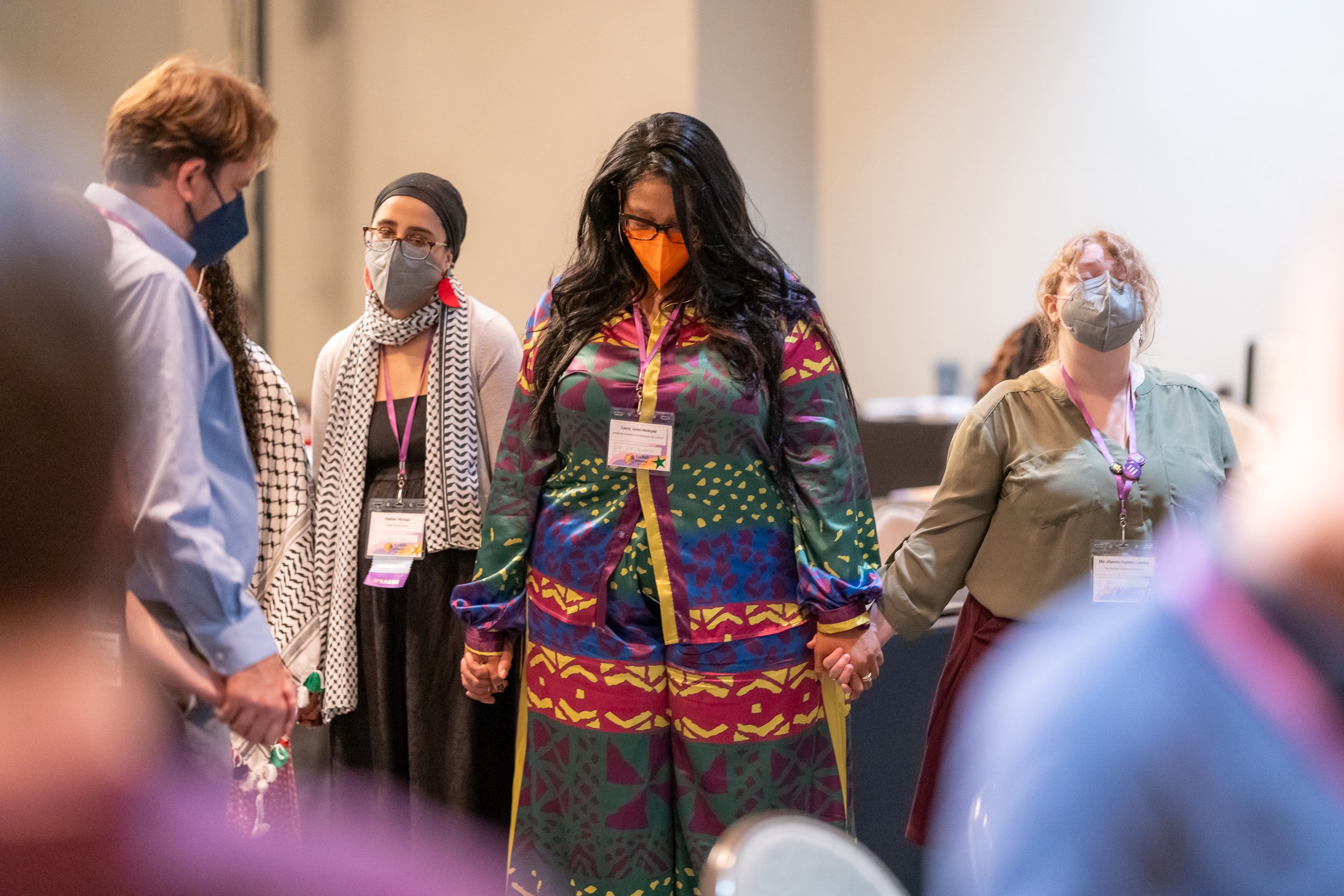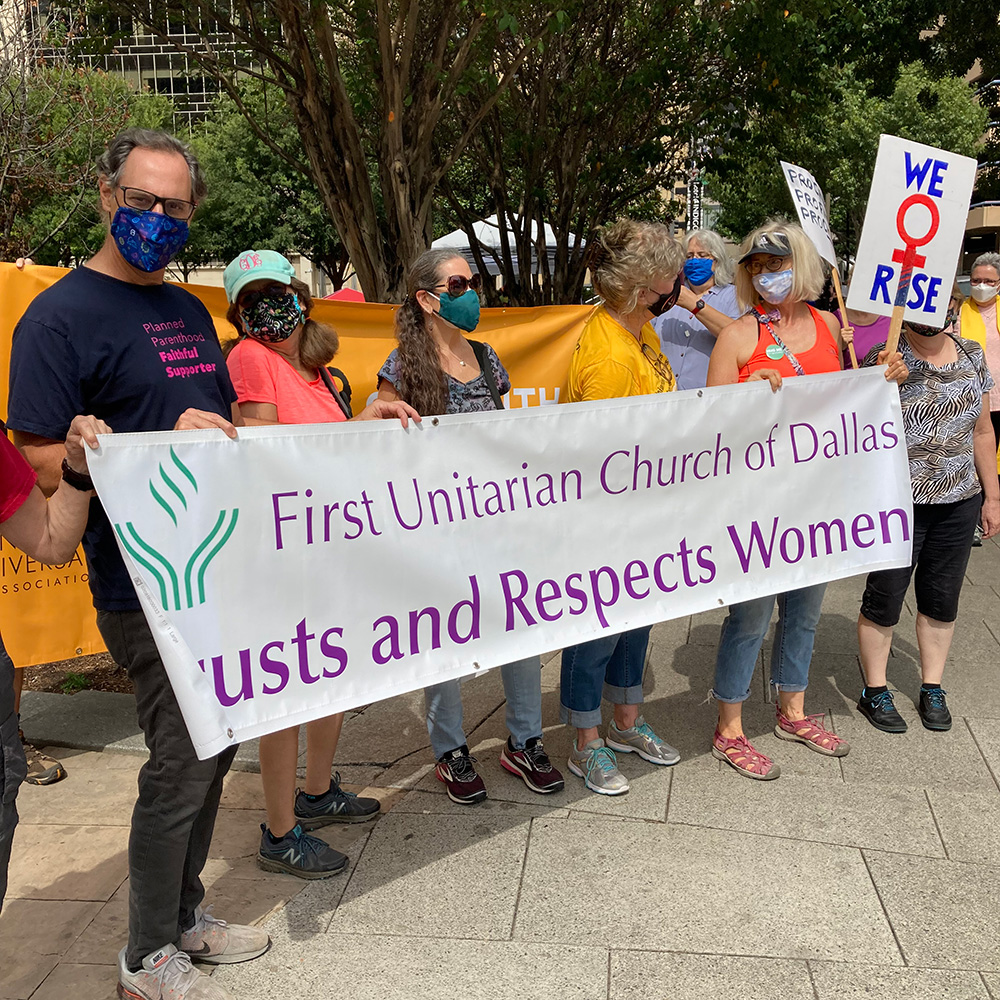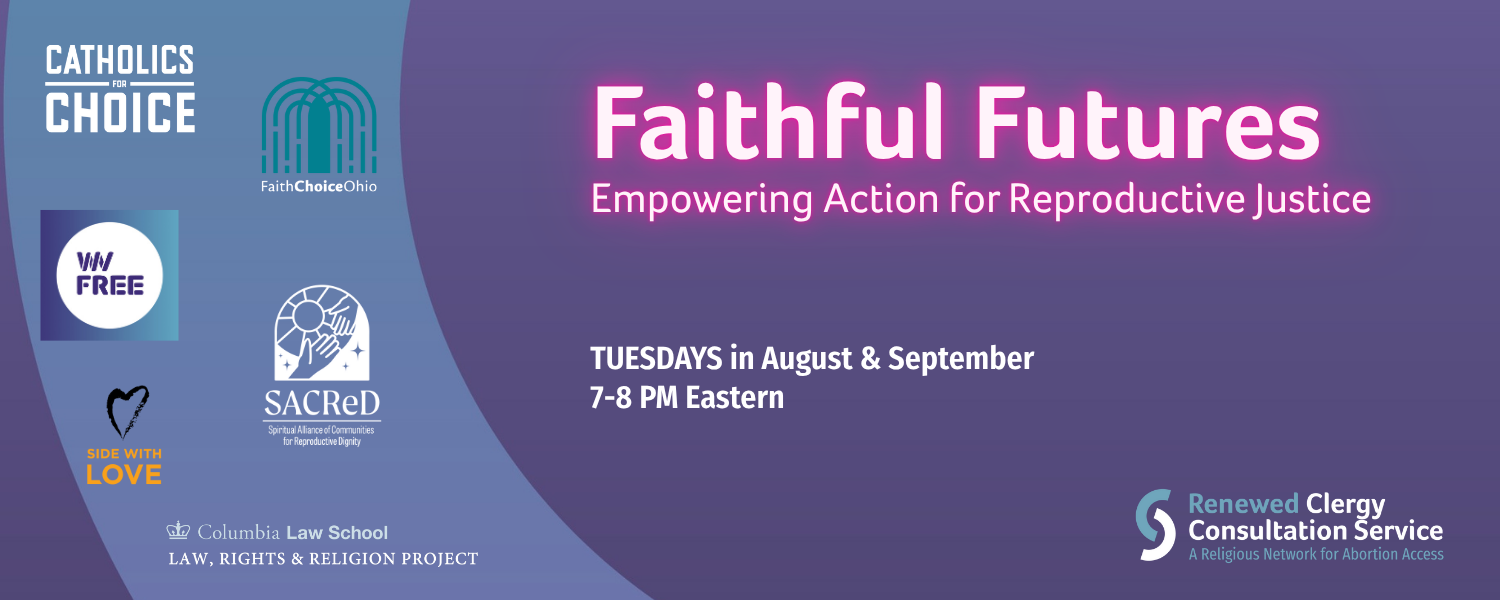Education and Designation

Eager to translate your faith into action to support Reproductive Justice, but not sure where to start?
Curious about how faith has and can serve as a crucial resource in building a world of justice, liberation, and possibility?
Ready to directly support people seeking and providing abortion access in your community?
The Faithful Futures series is for you! Join us this fall to learn from the Renewed Clergy Consultation Service, several organizations that are at the front lines of supporting Reproductive Justice as a matter of faith. This multifaith series is designed to help you develop new tools and skills to organize and take action, joining in the work for bodily autonomy and reproductive freedom that is already happening where you live.
Congregational Education and Designation
The SACReD Congregations designation process proceeds through informal discussion, education, critical reflection, congregational action, and public commitment phases. As a multi-faith organization, we begin by training leaders from congregations, who then teach our core curriculum to a group within their institution, adapting as appropriate to their specific faith setting. After a period of study and contemplation, the small group can invite the congregation into the larger designation process. While we have a structure and there are key accomplishments for formal designation, we expect congregations will move through the process in their own ways, on their own time. We consider all participants, at whatever stage, to be members of our beautiful alliance.
-
Dialogue:
Begin with informal discussion of Reproductive Justice principles & racial justice alongside congregational values
- What is the congregation’s starting point with its justice-resonant values?
- Where are the existing understandings of reproductive issues and intersectional justice?
-
Theology:
Articulate beliefs, principles, values, and moral commitments within the congregation’s faith tradition that are compatible with those of liberation ethics and Reproductive Justice
-
Education:
Equip congregation for the adoption of the Principles and Commitments and living into compassionate care and justice for sacred bodies throughout congregational and community life
- A SACReD Journey is a requirement
- Engage other educational supplements as appropriate to enhance SACReD’s curriculum and/or equip particular areas of ministry, before and/or after designation
-
Vote:
Officially vote as a congregation to affirm and adopt SACReD’s Principles and Commitments
- This process varies by the governance and bylaws of each community.
-
Concrete Action:
Live out what congregation has been equipped to do
- Worship
- Education and Programming
- Direct Service
- Pastoral, spiritual, and community care
- Organizing and Advocacy
-
Accountability Loop:
Engage with SACReD program team for mutual evaluation and growth
-
Re-Designate:
Every 3 years
A SACReD Journey: Toward Healing, Transformation, and Organizing for Reproductive Justice is a multi-disciplinary, intersectional, multi-modal approach to religion and Reproductive Justice. This curriculum invites groups already in the process of joining our SACReD Congregations participants into a deeper analysis of reproductive oppression and paths to liberation. Content includes academic lectures, journal and discussion prompts, exercises, healing rituals, and more. Congregational groups work through the material deliberately, taking care to approach it holistically.
9 Curriculum Modules:
- Foundations for the Journey
- Module 1: Introduction to SACReD, the Curriculum, and Each Other
- Module 2: Reproductive Oppression and Reproductive Justice
- Module 3: Religious Oppression and Liberative Faith Responses
- Guiding Principles for the Journey
- Module 4: Reproductive Dignity, Moral Agency, and Justice for ALL
- Module 5: All Bodies, Sexualities, and Genders are Sacred
- Module 6: All Reproductive Journeys are Sacred and Worthy of Support
- Commitments to the Journey
- Module 7: Personal Transformation for Reproductive Dignity and Justice
- Module 8: Local Transformation for Reproductive Dignity and Justice
- Module 9: Societal Transformation for Reproductive Dignity and Justice
Key Concepts:
- Reproductive Dignity
- All humans are endowed with dignity by our creator, and that value is shared across religious traditions. We are taught to respect the dignity of every human being, which includes respecting their moral agency when making reproductive decisions.
- Everyone should be able to make decisions, including all reproductive decisions, with dignity throughout their life.
- There is no moral consensus within or among religious traditions, nor outside of them, as to which reproductive actions are right or wrong in particular circumstances.
- There are clear, measurable outcomes of suffering and oppression associated with lack of access to a full range of reproductive healthcare services.
- Reproductive Justice Framework
- In 1994, twelve Black women who recognized the need to lead a national movement to uplift the needs of the most marginalized women, families, and communities, developed the framework. From the beginning, Reproductive Justice has unified sexuality and spirituality.
- The framework combines reproductive rights, social justice, and human rights through the lens of Black feminism.
- Defined by four tenets
- The human right to maintain personal bodily autonomy
- The human right to have children
- The human right not to have children
- The human right to parent the children we have in safe and sustainable communities
SACReD Curriculum Previews
Check out these short snippets inspired by the SACReD curriculum.
Consider these a teaser, a taste-test for A SACReD Journey: Toward Healing, Transformation, and Organizing for Reproductive Justice.
Use these snippets for a book club, Sunday school lesson, scripture study, lunch and learn, or any other group who might want to delve more deeply into Faith and Reproductive Justice.

Foundational Affirmation
Grounded in the justice principles that are at the heart of our religious traditions, we are committed to equity, dignity, and holistic well-being for all people. We recognize that reproductive issues are integral to social justice and cannot be exiled from our sphere of moral concern if we are to fully live out our commitment to human flourishing. Similarly, as reproductive concerns are inherently tied to intersecting systems of oppression, particularly those of patriarchy, racism, and poverty, we know we cannot isolate a narrow reproductive interest from a broader justice agenda. We acknowledge that, as religious communities, we have a particular responsibility to promote healing, bring new understanding, and make changes as religion has contributed to trauma, faith alienation, and mental health afflictions related to reproduction.
Guiding Principles
We, therefore, affirm the following guiding principles:
- The dignity of sacred bodies and the moral agency of all people deserve respect, including the bodily autonomy and agency of women, queer people, gender-expansive people, people with disabilities, immigrants, Indigenous communities, and people of color who have often been denied this respect.
- All creation is good and includes a beautiful diversity of sacred bodies, sexualities, and reproductive journeys.
- Pregnancy can be unintentional, but parenting is a sacred journey that requires intentional discernment. Prayerful decisions to have children, to not have children, or to end a pregnancy are equally moral.


Commitments
And therefore, this community commits to:
- Creating loving, justice-seeking faith communities that honor diverse reproductive decisions and journeys, free from shame, judgment, or stigma
- Supporting the work of parenting and the healthy growth of children in safe, sustainable, nurturing communities.
- Advocating for equitable access to the full spectrum of comprehensive reproductive healthcare as a moral and social good, and supporting fulfillment of reproductive moral agency and holistic flourishing for all.

